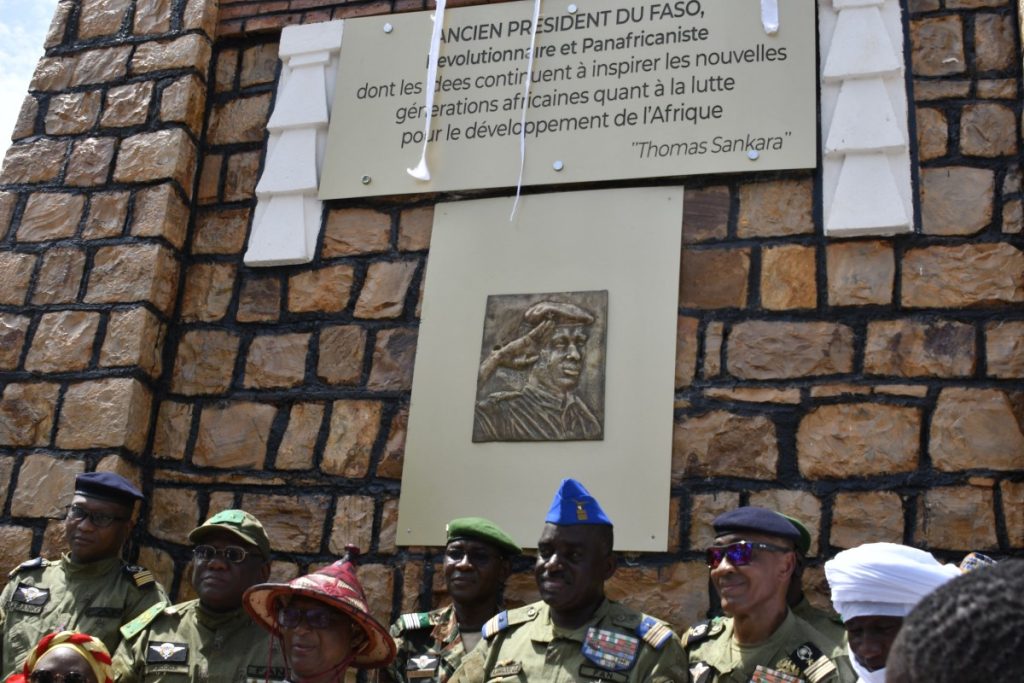Niger said farewell to the Avenue Charles de Gaulle on Tuesday as its ruling junta renamed multiple historic sites in the capital Niamey that previously had references to former colonial ruler France.
Since seizing power in a coup in July 2023, the military leaders of the Sahel nation have distanced themselves from Paris and instead established connections with other military regimes in Burkina Faso and Mali, as well as with Russia.
Accompanied by the sounds of marching bands in the background, several junta officials appeared on the streets to witness the inauguration of the new names.
“Most of our avenues, boulevards and streets… bear names that are simply reminders of the suffering and bullying our people endured during the ordeal of colonisation,” said Major Colonel Abdramane Amadou, Minister for Youth and a junta spokesman.
“The avenue which once bore the name of General Charles de Gaulle is henceforth christened ‘Avenue Djibo Bakary’,” Amadou added.
Bakary, a socialist politician who died in 1998, was a key figure in Niger’s fight for independence, which it gained in 1960.
The memorial commemorating those who died in the two world wars now pays “homage to all civilian and military victims of colonisation to the present day.”
The ruling junta often accuses France of trying to overthrow it and renaming monuments and streets symbolises Niger’s independence from its former colonial ruler.
After the coup, the Nigerien government removed the French ambassador and French soldiers who were fighting against terrorists in the region. Additionally, the Franco-Nigerien cultural centre is no longer a joint venture and has been renamed in tribute to Niger’s filmmaker Moustapha Alassane. Other monuments across Niamey will bear new names.

It is also worth noting that the portrait of French commander and explorer Parfait-Louis Monteil, engraved in stone for decades, has been replaced by a plaque featuring the effigy of neighbouring Burkina Faso’s iconic communist leader, Thomas Sankara.
Sankara, an anti-imperialist hero fondly known as Africa’s Che Guevara, was killed in a coup in 1987.
Amadou praised Sankara as a man whose “struggle for liberation” and “emancipation of peoples” continues to “inspire people” today.
Also, the Place de Francophonie has been renamed in honour of the Alliance of Sahel States—a confederation formed with Mali and Burkina Faso in 2023, solidifying ties between the coup-affected nations.
All three countries had their memberships suspended from the 88-state International Organisation of La Francophonie.
While General Assoumane Abdou Harouna, the capital region’s governor and a junta figure, vowed to “honour our ancestors,” Oumarou Abdourahamane, the president of the Niger branch of the NGO Urgences Panafricanistes, welcomed the new names.
“It makes no sense for our streets to continue to bear the names of former colonists… and so justice is being done by renaming these streets, by naming them after our country’s heroes,” he said.
Urgences Panafricanistes is led internationally by activist Kemi Seba, known for his strong anti-Western views, who was arrested on Monday in Paris for reasons that remain unclear.
Seba, born in France to Beninese parents, holds a Nigerien diplomatic passport as a special adviser to junta leader Abdourahamane Tiani.
Recently stripped of his French nationality, Seba is a radical black power activist often accused of anti-Semitism. He has faced multiple convictions in France for incitement to racial hatred.
In June 2023, shortly before the coup that ousted elected president Mohamed Bazoum, Niger adopted a new national anthem titled “For the honour of the fatherland,” which references the anti-colonial struggle. It replaced “La Nigerienne,” whose lyrics were written by French composer Maurice Albert Thiriet in 1961, a year after the country gained independence.

